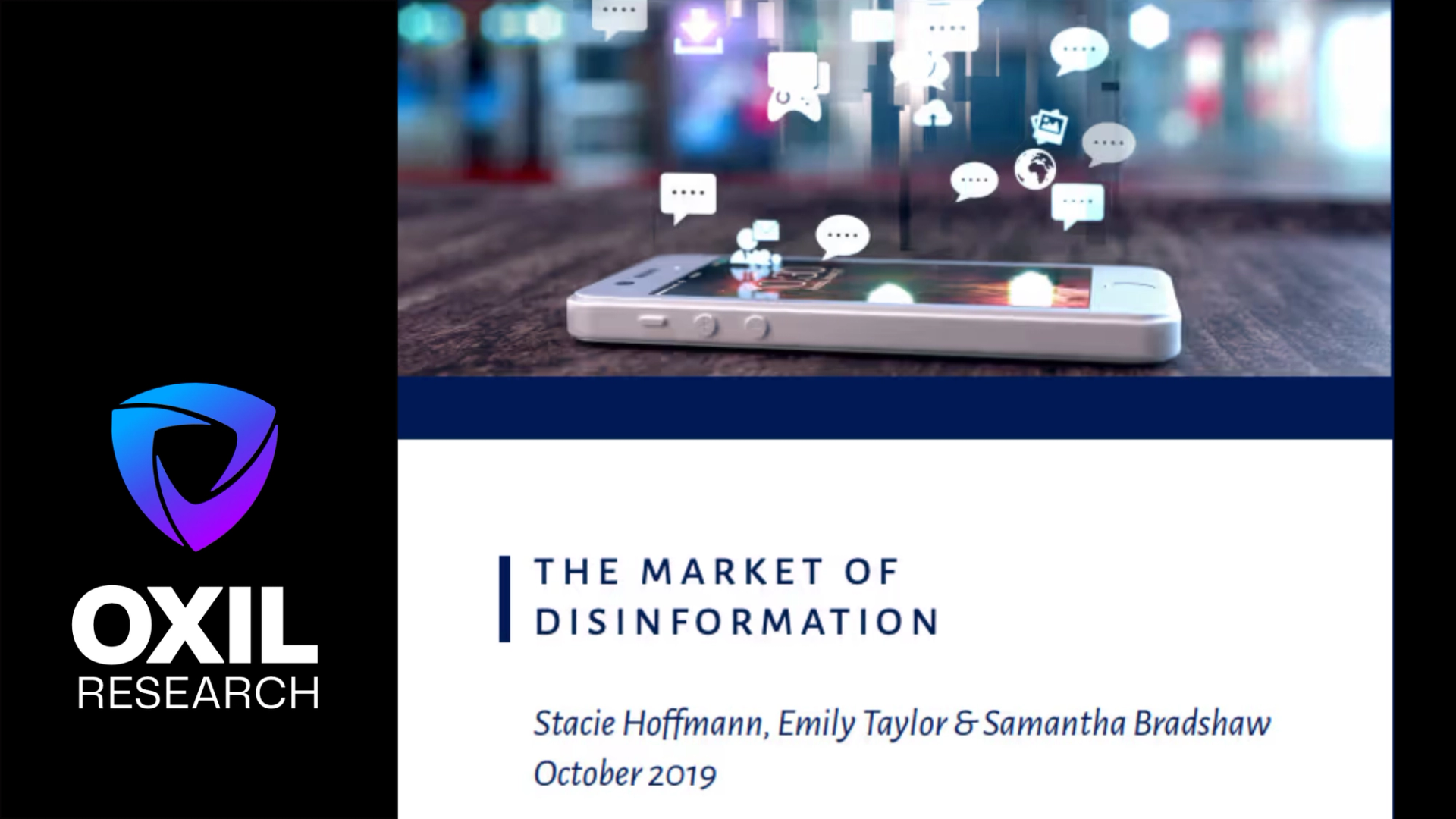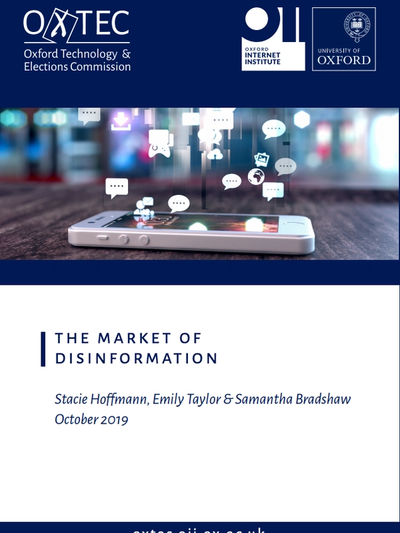Research PaperVisit our research →
The Market of Disinformation

Abstract
This report examines the impact of algorithmic changes made by social media platforms, designed to curb the spread of disinformation, through the lens of digital marketing. The report highlights some of the techniques used by campaigners to attract, retain and persuade online audiences. It also sets out recommendations for the UK Electoral Commission.
The 2016 US elections continue to cast a long shadow over democratic processes
around the world. More than 40 countries are pondering legislative responses
(Bradshaw, Neudert, & Howard, 2018). Meanwhile, the tech platforms have made
more than 125 announcements describing how, through self-regulation, they will
solve the manipulation of their platforms by bad actors (Taylor, Walsh, & Bradshaw,
2018).
Among the more frequently referenced self-regulatory measures are changes to
algorithms and the use of artificial intelligence (AI) to demote disinformation and junk
news. We ask whether these changes took place, and if so, have they had the
intended impact of reducing the spread of disinformation on social media platforms?
To date, much of the policy debate has focused on paid-for advertising on the
platforms, but what about the viral spread of unpaid, organic content?
Access Publication
Publication Document
OxTEC-The-Market-of-Disinformation.pdf
Research Details

- Publisher
- OxTEC
- Published
- October 29, 2019
- Last Updated
- August 5, 2022
- Pages
- 49